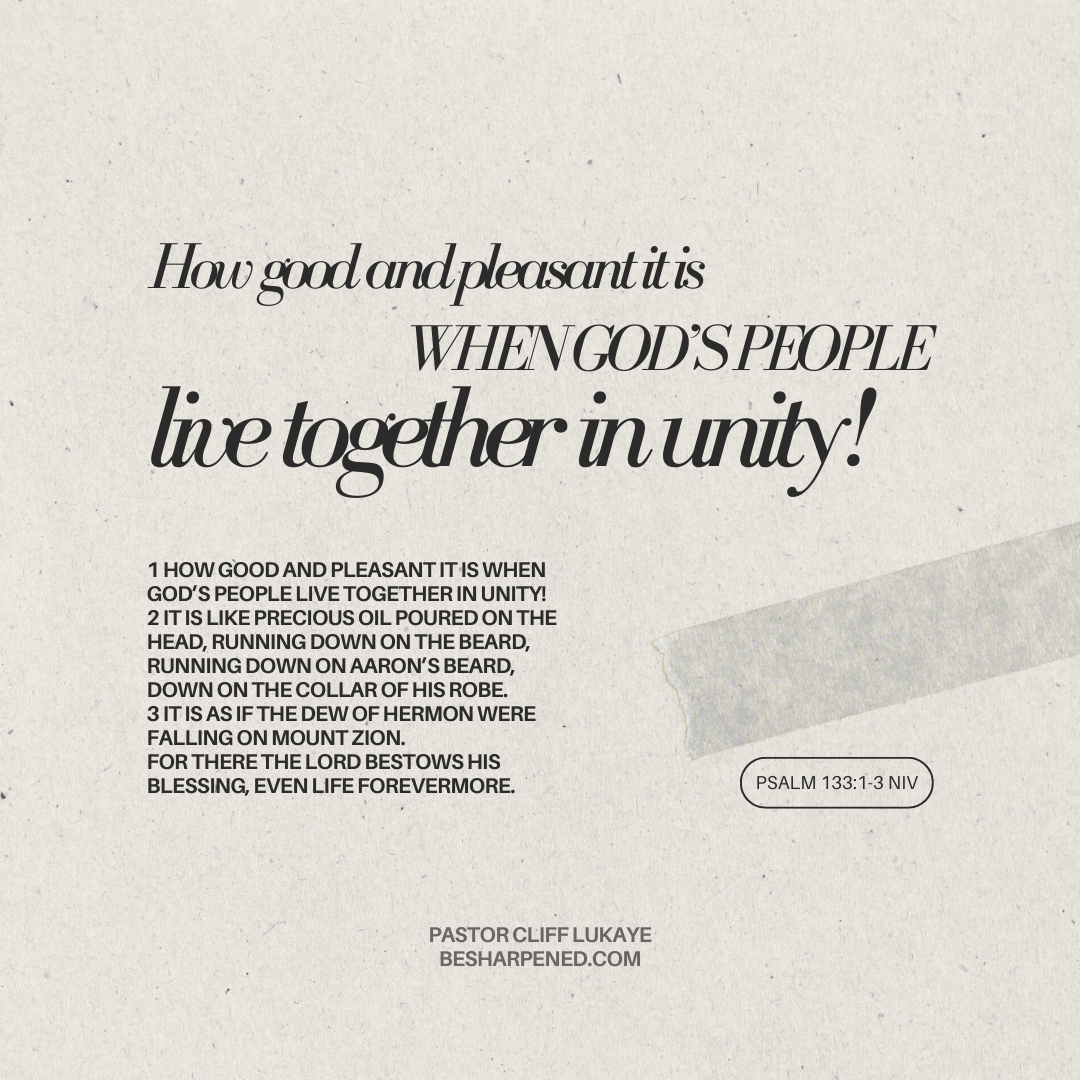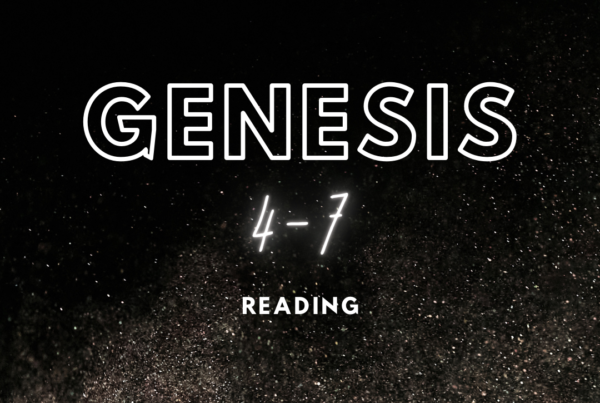”1 How good and pleasant it is when God’s people live together in unity!
Psalm 133:1-3New International Version (NIV)
2 It is like precious oil poured on the head, running down on the beard, running down on Aaron’s beard, down on the collar of his robe.
3 It is as if the dew of Hermon were falling on Mount Zion.
For there the Lord bestows his blessing, even life forevermore.
Psalm 133:1-3 Devotional (Daily Bible Verse)
When God’s people live together in unity
In Psalm 133:1-3, which I have themed “When God’s people live together in unity“, David penned one of the most beautiful descriptions to have ever been written on the unity of the people of God. He focussed on the subject of God’s people dwelling together in harmony.
Psalm 133
Psalm 133, however, is a song of ascent that was to be sung by the Israelites when they were going up to the Temple in Jerusalem to worship God. Because a song of ascent was to be sung when God’s people were going to a high place to worship Him.
The Israelites, therefore, sang Psalm 133 to express their joy in coming together to worship God. For God had promised to meet with them when they gathered at the Temple.
The Psalm, therefore, proclaims oneness in faith and God’s promise of blessing His people. Consequently, its major theme is unity.
The goodness and pleasantness of Christians living together in unity
Psalm 133:1-3, nevertheless, tells you and me about the goodness and pleasantness of Christians living together in unity. David used two metaphors to describe the goodness and pleasantness of Christians living together in unity. He used the downward flow of anointing oil on Aaron and the falling down of dew on Mount Zion, respectively, to describe the goodness and pleasantness of Christians living in harmony.
The downward flow of anointing oil on Aaron
King David’s use of the anointing of the high priest, a ceremony that involved oil, which was both liquid and fragrant (Exodus 30:22-33), was clearly focused on the oil’s liquid property. Therefore, his repetition of the word “down” gives the clue to understanding his use of the anointing oil metaphor. Because the oil was poured on Aaron’s head and flowed downward, from the top of his head to his beard, to his collar, and further down.
Therefore, the downward movement of the oil points to the source of unity as being above and beyond the high priest. That is, God poured unity onto His people just as the anointing oil spread from Aaron’s head to his beard to his clothing. And as the oil flowed downward, it would drip onto the breastplate which bore a stone for each of the twelve tribes.
Unity was, consequently, God’s gift to his people. He gave His people this gift through the mediation of the High Priest. And your High Priest is now the Risen Jesus Christ, who is the head of the church.
God’s Spirit and Unity
Consequently, God’s promised Spirit flows from Him to the Head, to the body, that is, from Christ to the church. No wonder, after the early Christians received God’s promise (Acts 1:4-8 and 2:1-4), the Holy Spirit, exhibited remarkable unity (Acts 2:42-47). And God, through Christ, reconciled the Jews and Gentiles to Himself (Ephesians 2:11-22).
The falling of dew on Mount Zion
The Psalmist also used the falling of the dew of Hermon on Mount Zion, where Zion symbolizes the Church. And because Hermon was the highest point in Northern Israel, it was snowcapped. Therefore, when the ice caps would thaw, the water would flow down to the whole land and refresh it. That is God’s blessing flows from above to His people.
Prayer/Blessing
Lord God, teach me to love my fellow Christians. This will help me to be an active participant in and a promoter of the one family that You called me into.
So help me to view and interact with my fellow Christians appropriately. For this is my humble prayer in Jesus’ Name, Amen.
Daily Bible Reading
Nehemiah 11-12 (see How to Read the Bible in One Year or How to Read the Bible (for Beginners))





